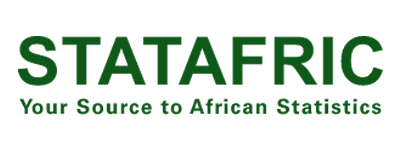Casablanca, Morocco – From 9 to 11 July 2025, high-level representatives from African Union Member States, European statistical institutions, international organizations, and technical cooperation agencies will converge in Casablanca for the Continental Forum on Administrative Data Sources.
This forum, part of the Pan African Statistics II (PAS II) Programme, is financed by the European Union and managed by Eurostat, with Expertise France implementing the event in partnership with STATAFRIC and UNECA (United Nations Economic Commission for Africa).
The Continental Forum is designed to explore how Africa can harness the power of administrative data—routinely collected by government institutions for non-statistical purposes—in producing high-quality, reliable, and harmonized official statistics. These statistics are essential for informing public policy and advancing both the African Union's Agenda 2063 and the United Nations' Agenda 2030 for sustainable development.
Unlocking the potential of administrative data
The Forum’s theme is “Harnessing Administrative Data in Africa: Breaking Silos to Accelerate the Agendas 2063 and 2030.” It seeks to break down institutional silos and unlock the vast potential of administrative data to drive sustainable economic development. Administrative data can be a cost-effective and reliable tool for statistical systems, offering regular updates, broader coverage, and significant reductions in data collection costs compared to traditional surveys and censuses. These data also provide valuable insights into long-term trends, allowing governments to track and respond to shifts in population, education, healthcare, and employment.
- “Quality administrative data is a cornerstone for fostering democratic governance in Africa. It empowers governments to make informed decisions that directly impact the lives of their citizens," said Mr. Adoum Gagoloum, Head of the Economic Statistics Division at STATAFRIC.
- “With accurate data, we can build better infrastructure, ensure equitable distribution of resources, and strengthen the foundation of democracy across the continent”.
The African Union’s SHaSA 2 Strategy recognizes the integration of administrative data as a key pillar of modernization within Africa’s statistical systems. This strategy provides a framework to guide African countries in leveraging administrative registers to create more efficient, transparent, and cost-effective national statistical systems. The forum will offer key discussions on best practices for integrating these registers into national statistical systems, legal frameworks for data sharing, and overcoming barriers to data accessibility.
The importance of legal frameworks and data sharing
One of the forum’s central topics will be the need to modernize legal frameworks to facilitate the use of administrative data. For example, South Africa’s Statistics Act serves as a model for enabling data access even in the presence of privacy concerns.
- “It is crucial that African countries learn from each other’s successes and challenges in administrative data usage. This exchange will enable us to adapt European frameworks in ways that best meet our local contexts.” added Mr. Gagoloum.
The Forum will encourage cross-border dialogue, with STATAFRIC acting as a hub for building stronger collaboration across the African continent.
Collaboration and learning from European experiences
While the forum will draw on European experiences with register-based systems, it will also emphasize the importance of adapting these experiences to the African context. Countries like Spain, Finland, and Norway will share their models, which focus on fiscal, demographic, and business registers that have proven essential for official statistics in Europe. Through PAS II, European partners are offering technical expertise and tools to help African countries modernize their statistical systems.
By working together, African countries can create integrated, reliable data systems that will support more robust decision-making and facilitate better governance.






